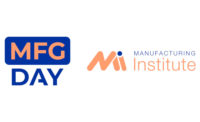PHILADELPHIA - Results from theBusiness Outlook Surveysuggest that regional manufacturing activity continues to expand in July but has slowed over the past two months. Surveyed firms reported a decline in new orders this month compared with June. Employment showed a slight improvement this month. The survey’s broad indicators of future activity continue to suggest that the region’s manufacturing executives expect growth in business over the next six months, but optimism has waned notably in recent months.
The survey’s broadest measure of manufacturing conditions, the diffusion index of current activity, decreased from a reading of 8 in June to 5.1 in July. The index, although still positive and suggesting growth, has fallen for two consecutive months. Indexes for new orders and shipments also suggest a slowing this month: The new orders index fell 13 points, to its first negative reading in 12 months, and the shipments index decreased 10 points but remained positive. Indicating weakness, indexes for both delivery times and unfilled orders fell and were in negative territory this month.
Firms indicated a slight increase in employment this month. The percentage of firms reporting increases in employment (13%) narrowly edged out the %age of firms reporting decreases (9%). Indexes for both employment and average workweek were slightly positive this month after registering negative readings in June.
On balance, firms reported declines in prices for their own manufactured goods: Slightly more firms reported decreases in prices (16%) than reported increases (8%). The largest percentage, 76%, reported no change in prices for their manufactured goods. Firms reported somewhat less cost pressures over the past two months. Although the prices paid index increased 3 points this month, it remains 22 points below its reading of just two months ago.
The future general activity index remained positive for the 19th consecutive month but fell 15 points, to a reading of 25.0, its lowest in 16 months. The future new orders and shipments indexes also declined notably, falling 22 and 13 points, respectively. For the 15th consecutive month, the percentage of firms expecting employment to increase over the next six months (30%) exceeded the percentage expecting declines (17%). The future employment index decreased 7 points and is at its lowest level in eight months.
In special questions this month, firms were asked about seasonal plant shutdowns or slowdowns during the summer. About 25% of the surveyed firms indicated that it was normal to schedule such slowdowns during the summer months, nearly the same as in the previous year. About one-third indicated that they would schedule them this year, compared with 49% last year. Forty-eight percent of the firms scheduling shutdowns/slowdowns indicated that production decreases for July would be greater than usual; however, 62% indicated so last year. Nearly 44% indicated production declines for August would be greater than usual, compared with 49% last year.
According to respondents to the July Business Outlook Survey, regional manufacturing activity continues to expand, but indicators for new orders and shipments have been suggesting a slowdown over the past two months. Firms reported declines in prices for their products and some moderation in input price pressures over the past few months. Firms expect continued growth in their manufacturing business over the next six months, but along with a slide in current indicators, confidence slipped noticeably this month.
Get our new eMagazine delivered to your inbox every month.
Stay in the know with Quality’s comprehensive coverage of the manufacturing and metrology industries.
SIGN UP TODAY!Copyright ©2024. All Rights Reserved BNP Media.
Design, CMS, Hosting & Web Development :: ePublishing


